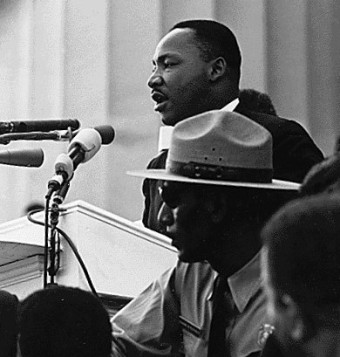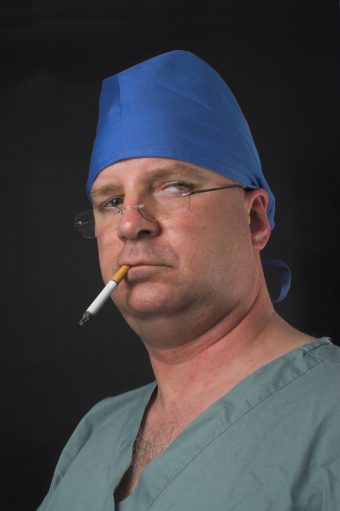Say Goodbye to Your Stethoscope: An Interview With Dr. J. Christian Fox

With Portable Ultrasound, Some Medical Students are Already Ahead of the Curve.
So you're on wards, doing your best to look smart, take care of your patients, and get that fine letter of recommendation. Suddenly, the attending thinks he hears an extra sound while doing a cardiac exam. Now, full of joy and self pride, he will take time to let you have a listen. The goal, of course, is so you can develop your powers of cardiac auscultation or look like an idiot, the latter being more likely. Either way, you eagerly place your stethoscope over the patient's chest wall with a very intelligent and contemplative look, all while trying your best not to seem studentish. Tuning in to listen, you even furrow your eyebrow a little, shake your head up and down and mutter, “Hummmm very interesting....yeah...that’s very interesting,” careful not to oversell it. Of course, you hear no murmur, nothing other than good ol’ S1 and S2 lub dubbing along. But, you cannot disappoint your attending who is looking down at you full of pride for catching this slight blip on the radar of the patient's cardiac cycle. He is just glad someone is here to appreciate the level of medical acumen that has just been demonstrated and imparted to a future doctor who will carry on the sacred art.
Learning to identify and diagnose patients based on every little slosh or swoosh heard by your stethoscope is a skill that we are all expected to master as a medical student. However, according to Dr. Eric Tropol, you may never need it as a physician. As I watched the TEDMED talk by Dr.Topol, I learned that we may not need the stethoscope for long. Medical wireless and portable ultrasound companies are developing new devices that make it possible for doctors to carry an Echocardiograph machine in their lab coat. So now I don’t feel so bad about my underdeveloped auscultation powers. If I cannot hear something, I’ll just get and echo or ultrasound; problem solved.
However, now we have another predicament. Have you ever been asked to explain what you see on an ultrasound or echo? I have, and I get the same feeling when looking at a Jackson Pollock painting. Usually, my face gets all wrinkled, I shrug my shoulders and shake my head, utterly clueless. I have also been known to take the 3D Magic Eye approach, pushing my nose to the screen and staring intensely, hoping that a 3D image will magically pop out at me making the diagnosis. Hasn’t happened yet, but I’m still optimistic. There are a few medical students in the nation who are probably reading this and thinking I’m a giant kook because they can read ultrasounds in their sleep. Dr. J Christian Fox is the director of University of California Irvine’s portable ultrasound program. Part of his passion is to give the medical students and residents training in ultrasound techniques. He sees that the use of ultrasound will continue to grow as a tool for diagnosing and treating disease. After the interview, I was left wondering why more institutions aren’t teaching ultrasound in their curriculum.
To Learn More Visit:
- www.ultrasound.uci.edu
- Search Fox Ultrasound in iTunes for free Podcasts
- www.sonosim.com
Check out our conversation below


 1 Uncommon Comment
1 Uncommon Comment




"I wouldn't do it twice, but I would not 'not' do it once."
- ZDoggMD